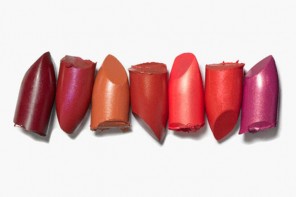The Most Eco-friendly Label Around
Ascension has recently launched a new label whose T-shirts might just be the most eco-friendly T-shirts around! Ascension has teamed up with The Carbon Trust to create the UK´s first clothing range to be officially carbon labelled. What´s more, the T-shirts are made from 100% organic cotton in a Fair Wear Foundation (and solar powered) factory in India.
Fashion´s carbon footprint
Every garment carries with it a carbon footprint. Is it large or small? Up till now, it was difficult to find out. That´s all about to change, with the introduction of The Carbon Reduction Label for clothing.
The label highlights products that have minimised and measured the carbon footprint for the entire lifecycle of the garment. Verified by The Carbon Trust, the label lets you compare one potential purchase against the carbon footprint of another. And it encourages producers to look for alternatives to carbon-heavy manufacture.
The Carbon Trust
The Carbon Trust work with organisations to reduce carbon emissions and develop alternative commercial low carbon technologies.
They study all stages of the supply chain through to end disposal, giving us – and government bodies – a clear indication of how much carbon is created through our everyday lives, and how, with forethought and planning, both from industry and individuals, those carbon emissions can be substantially reduced.
To earn the right to bear their Carbon Reduction Label, each Ascension T-shirt has been carefully measured through the supply chain from cotton fields to wind powered manufacturing, screen printing, to the warehouse, onto your care of the T-shirt and the disposal, at the end of its life.
The smaller the carbon footprint, the bigger the step forward
The Ascension brand has made great strides to lower their Carbon Footprint. In partnership with their T-shirt supplier, Continental Clothing, all garments have been manufactured solely using sustainable energy generated from wind and solar power. The organic cotton is planted and harvested by hand in regions where up to 95% of its water is from monsoon rain. And then, only eco-dyes are used.
This means those gorgeous colours have been certified by Oeko-Tex 100 Standard to ensure that both textiles and dyestuffs are not harmful to human health. The inks used to print are water based and approved by the Soil Organisation. There is also a guarantee that not only is the cotton used 100% organic to Soil Association standards, no cotton from Uzbekistan will be used while the use of forced child labour in that region is endemic. Packaging too, has been reduced right down to bare essentials, not just following footprint friendly guidelines in terms of how much is used, but also ensuring it’s recyclable and environmentally harmless.
New Label, New Designs
Ascension has launched some new designs to celebrate the launch of the Carbon Reduction Label. The designs have irony and humour and play on Ascension’s heritage in rural Dorset. This has always been a cool fashion brand with eco credentials attached. Now it celebrates another fashion-first, being the first fashion brand in the UK to hold the Carbon Reduction Label.
Your Carbon Footprint
Is your carbon footprint big or small? Can you take steps to minimise it yourself?
Already, Ascension T-shirts create 90% fewer carbon emissions over their lifecycle than comparable products t-shirts have been manufactured, packaged and transported to Footprint-Friendly principles. A regular T-shirt has an average carbon footprint of 6.5kg if it’s produced using non-renewable energy sources. Ascension T-shirts average only 2.8kg.
And you can make this even smaller. For instance, if you wash your T-shirt at 30 degrees, wash it less and line dry rather than tumble dry, you will be reducing carbon emissions even more. If you cut out ironing too you reduce this further by up to 50%. Now that’s what we call Eco-Pioneering!
Click on the link to shop online








